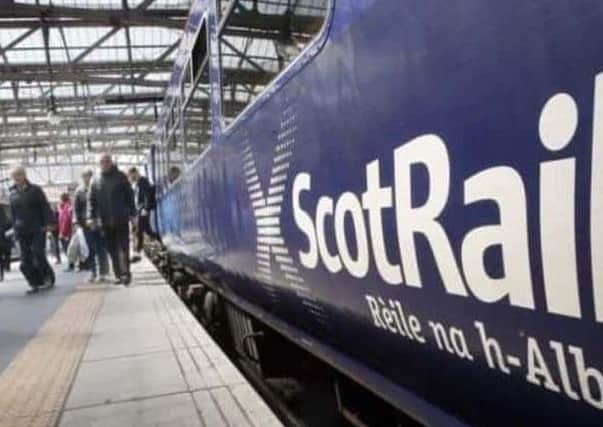ScotRail decision is a chance we must not blow – leader comment


The Scottish Government’s decision to strip Abellio of the ScotRail franchise three years early may not come as a surprise to passengers annoyed by delays.
However, the reason seems to have been made over the cost of running the service, rather than its quality.
Advertisement
Hide AdAdvertisement
Hide AdThis means that a new company will take over in 2022 and, following changes to the rules, it could be a public sector one. The beleaguered supporters of Jeremy Corbyn and train enthusiasts with a rose-tinted view of the former British Rail may well be celebrating this prospect.
Can Scotland now look forward to a train service so good, so efficient and comfortable that it rivals France’s famed SNCF? Amid the excitement, it should be noted that French rail commuters grumble about their own services and bear in mind the old adage about the grass being greener on the other side.
The main problem with ‘nationalised’ services is that they become caught up in the competing priorities of a democratically elected government. If you are a politician, which is the most pressing priority: the NHS, education or easing overcrowding on the 8.22 train to Falkirk High? Almost inevitably, over time, the budget for trains would get squeezed.
However, the potential for a public sector company to make a bid could worry private rivals and help secure a good deal for the tax-payer – the Scottish Government currently pays ScotRail about £250 million a year – and passengers.
Competing private bidders are likely to know each other well, but a state-owned enterprise may be a bit of an unknown quality, forcing them to offer the best terms they can manage. However, as we saw with the UK Government’s decision to replace Virgin Trains East Coast with a public sector “operator of last resort” in May last year, there is always a danger that firms will bid too much money for the contract and be unable to deliver.
The main concern for most of the travelling public, however, is unlikely to centre on issues of ownership, whatever Corbynites may think.
Most of us simply want to be able to find a seat on a train that gets us to where we want to go, on time and for a reasonable price, preferably with a non-polluting electric engine and a decent wifi connection.
In one of the world’s richest countries in the 21st century, that doesn’t seem like an impossible dream. Does it?